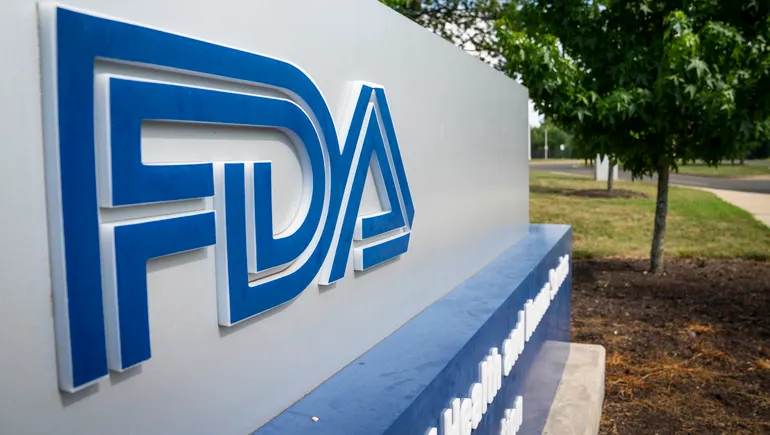FDA panel seeks more data on RSV vaccine safety in infants


A panel of experts convened by the Food and Drug Administration called for more data to be collected on the safety of vaccines for respiratory syncytial virus in infants, indicating caution after the agency partially paused enrollment of clinical trials testing certain RSV shots in young children.
The advisory committee, which met at the FDA’s request Thursday, did not reach a conclusion about the cause of a safety signal observed in pediatric testing of Moderna’s RSV vaccine. Panel members were largely in agreement on needing additional information before moving forward. The committee did not vote on any specific safety precautions, or on whether trials currently on hold can move forward.
Investigators in a Moderna trial reported cases of severe RSV in infants between 5 months to 8 months old who had received one of two formulations of the company’s vaccine. The study was paused in July, and the FDA eventually put a hold on enrolling children under the age of two into all clinical studies testing RSV vaccine candidates that aren’t of the live-attenuated type. The hold also applies to children aged 2 years to 5 years who have never been infected with RSV.
According to briefing documents prepared by FDA staff, there are 26 candidates in pediatric clinical development, 11 of which use other technology than live-attenuated.
“We are confronted by a very complicated situation,” said Arnold Monto, a panelist and professor emeritus of epidemiology and public health at the University of Michigan’s School of Public Health.
Moderna’s vaccines are built from messenger RNA. It sells one formulation of its RSV shot for older adults under the brand name mResvia, and is testing that and another that’s designed to also protect against human metapneumovirus in children.
The company first tested its RSV vaccines in children between 8 months and 24 months old before enrolling infants between 5 months and 7 months of age. Among that latter group, five cases of severe RSV were reported among participants who received Moderna’s shot, versus one case in those given placebo. There was also one case of an RSV-associated hospitalization in an older child participant that occurred after Moderna proceeded with testing in young infants.
While concerned about the cases reported, advisers noted the trial’s safeguards did hold.
“What is already in place is working,” said Adam Berger, director of clinical and healthcare research policy in the Office of Science Policy at the National Institutes of Health. “We just don’t really have a good understanding of the mechanism that is driving the safety signal.”
Beger noted that, of the 11 pediatric trials on partial hold, data was only available from Moderna. “I don’t think we can make a generalized answer to a technology based on just having one study, I fully agree there is an absolute safety signal here, and the steps that we’re taking are I would support, but I’m not sure I can actually apply that to all mRNA programs,” he said.
Some advisers also noted that many of the enrolled infants in Moderna’s study were located in Panama, and it was unclear if any local factors affected the “immune response of individuals,” said Michael Nelson, professor of medicine and division chief for asthma, allergy, and immunology at University of Virginia Health.
The committee emphasized the need gaining better understanding of the immune response in different age groups, and called for continued monitoring of immune responses in trial participants. They indicated interest in further discussions as that data comes in. None called for ending all studies testing RSV candidates in infants.
Advisers also spoke positively about Sanofi’s monoclonal antibody Beyfortus, which is approved to provide temporary protection from RSV in infants, as well as use of Pfizer’s RSV vaccine as a maternal immunization to pass passive protection along to newborns.
This post has been syndicated from a third-party source. View the original article here.




